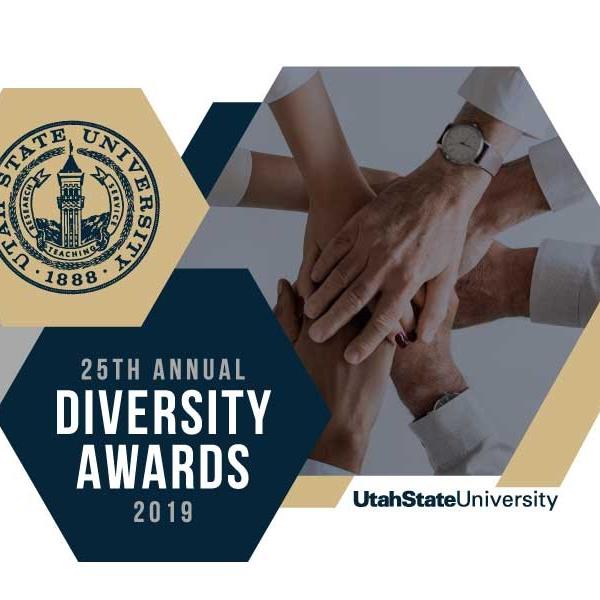Dr. Kristin Searle (she/her)
Associate Professor

Biography
Kristin Searle loves to embrace all the Logan area has to offer, especially skiing and mountain biking.
Kristin’s research focuses on broadening the participation of females and minorities in STEM, with a focus on how to design learning activities that align with participants gendered and cultural identities. She works across formal K-12 and informal educational spaces.
Kristin has worked with Indigenous communities for over a decade. One of her favorite parts of her time at USU has been building relationships with Indigenous-serving high schools in Southern Utah. Her new undergraduate course, Technology, Games, and Culture will take a deeper look at the significance of gender, race, and ethnicity in games and other technologies.
Kristin is open to working on her research projects with students at the PhD, Master’s, and undergraduate levels who are first-time researchers. Working with her, students will develop a strong grounding in sociocultural theory, learn how to collect and analyze qualitative data, and how to work with communities (rather than conducting research on communities).
Featured Work

Boys' Needlework
Understanding Gendered and Indigenous Perspectives on Computing and Crafting with Electronic Textiles. The goal of this project is to examine the experiences of ten American Indian boys (12-14 years old) who participated in introductory computing activities with e-textiles. The project draws attention to the intersection of race/ethnicity and gender in computing education. Kristin received the John Henry Award from the International Computing Education Research Association for her innovations in computing pedagogy with American Indian youth. ”For more information, see https://dl.acm.org/citation.cfm?id=2787724.

USU Diversity Award in the Faculty Category
Kristin Searle’s passion is working with Native American students to promote cultural values within education. She is helping bridge the gap between the main university and USU Blanding by working closely with administrators and faculty in Blanding to provide more educational opportunities for the Native American population. With particular focus in the areas of science, technology, engineering and math, Searle has been instrumental in securing National Science Foundation grants to promote STEM concepts and exposure for Native American youths in the Blanding area. Learn more at usu.edu/equity/diversity-awards/Searle

ICLS Best Paper Award Nominee
Kristin received a nomination for her 2018 paper: Cultural Repertoires: Indigenous Youth Creating With Place and Story. Every year, ICLS (the flagship conference from the Learning Sciences) nominates six papers as best paper based on reviews. For more information, see https://usu.box.com/s/suq0k78l7mml77kx438j61z69wtos7f7
CSedGrad
CSEdGrad, an NSF-funded collaboration group that is focused on exploring and developing the pathways for computer science education graduate students, invited Kristin to discuss her dissertion: "Culturally Responsive Computing for American Indian Youth: Making Activities with Electronic Textiles in the Native Studies Classroom." Listen to the recorded podcast
CHAOS Learning Lab
The CHAOS learning lab is co-directed by Dr. Kristin Searle and Dr. Colby Tofel-Grehl (School of Teacher Education and Leadership). The lab focuses on integrated STEM and computer science learning for K-12 students and teachers, culturally responsive computing, and making activities for minoritized youth and communities.
Contributors: Kristin Searle, Colby Tofel-Grehl, Andrea Hawkman, Beth MacDondald, Mario Suarez, Soojeong Jeong, Liam Fischback
Funded by the National Science Foundation and Utah State University.
Searle, K.A. & Tofel-Grehl, C. (2020-2023). COLLABORATIVE RESEARCH: Indian Education and Computing for All: A Montana Story. National Science Foundation. Award #2031279. ($364,744).
Searle, K.A. & Litts, B.K. (2016-2021). COLLABORATIVE RESEARCH: Culturally Responsive Making:
Developing High-Low Tech Maker Activities in Local and Mobile Spaces for Supporting American Indian Youth. National Science Foundation. Award #1623404. ($198,836.00).
Tofel-Grehl, C., & Searle, K.A. (2019-2020). Project E-STITCH: Elementary STEM Teaching Integrating Textiles and Computing Holistically Research Experiences for Undergraduates. National Science Foundation. Award #194507. ($10,250).
Tofel-Grehl, C., & Searle, K.A. (2019-2020). Project E-STITCH: Elementary STEM Teaching Integrating Textiles and Computing Holistically Supplement. National Science Foundation. Award #1758823. ($31,439).
Tofel-Grehl, C., & Searle, K.A. (2018-2020). Project E-STITCH: Elementary STEM Teaching Integrating Textiles and Computing Holistically. National Science Foundation. Award #1758823. ($399,531).
Searle, K.A. & Tofel-Grehl, C. (2018). Animal investigators: Constructing tools for data-driven science. Utah State University Research Catalyst Grant ($20,000).
Tofel-Grehl, C. & Allan, V. (2015-2018). Integration of Computing with Electronic Textiles to Improve Teaching and Learning of Electronics in Secondary Science. National Science Foundation. Award #1542801. ($1,091,397.00). (Searle, K.A. -" senior personnel).
Research Focus
Kristin Searle studies how students’ gendered and cultural identities impact their engagement with computing. She focuses on how participating in making activities (like electronic textiles) can broaden students’ sense of what computing is and who can do it, with a particular focus on the development of culturally responsive computing pedagogies. Kristin’s work has appeared in a number of journals, including Harvard Educational Review, Thinking Skills and Creativity, and International Journal of Multicultural Education. Her current research interests include:
- Culturally Responsive Computing
- eTextiles Curriculum and Professional Development - elementary and secondary school
- STEM identity development
Selected Publications
Searle, K.A & Kafai, Y.B. (2015). Boys’ needlework: Understanding gendered and Indigenous perspectives on computing and crafting with electronic textiles. In, Proceedings of the eleventh annual International Conference on International Computing Education Research (pp. 31-39). Omaha, Nebraska, Association of Computing Machinery.
Kafai, Y.B., Fields, D.A. & Searle, K.A. (2014). Electronic textiles as disruptive designs: Supporting maker activities in schools. Harvard Educational Review, 84(4), 532-556.
Searle, K. A., & Tofel-Grehl, C., & Breitenstein, J. (2019). Equitable engagement in STEM: Using e-textiles to challenge the positioning of non-dominant girls in school science. International Journal of Multicultural Education, 21(1), 42-61.
Searle, K.A., Litts, B.K., & Kafai, Y.B. (2018). Debugging open-ended designs: High school students’ perceptions of failure and success in an electronic textiles design activity. Thinking Skills and Creativity. https://doi.org/10.1016/j.tsc.2018.03.004
Searle, K.A., Casort, T.*, Litts, B.K., Brayboy, B.M.J., Dance, S.L.*, & Kafai, Y.B. (2018). Cultural repertoires: Indigenous youth creating with place and story. In, Proceedings of the 13th International Conference of the Learning Sciences. London, UK. (Best paper award nominee).

